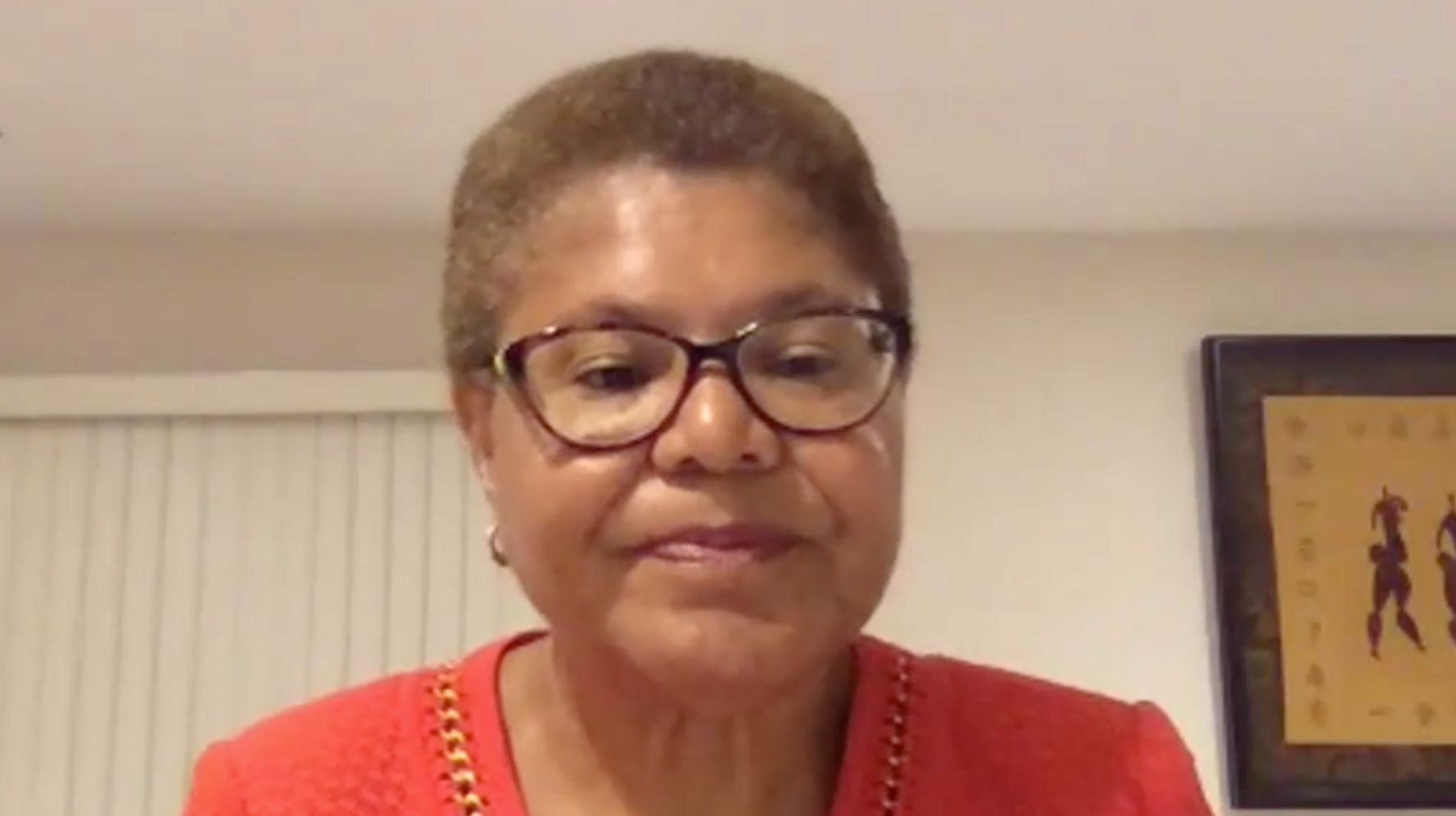[ad_1]

Democratic Reps. Karen Bass (Calif.) and Ruben Gallego (Ariz.) are joining the many activists and journalists of color drawing attention to how states reopening businesses too soon amid the coronavirus pandemic are likely placing workers of color at disproportionate risk.
During a virtual town hall Monday on the need for more federal funding during the coronavirus crisis, Bass noted the disproportionately high death rates from COVID-19 among Black and Latinx people.
“We know that the administration has decided to adopt magical thinking and they’re just going to say, ‘Hey, we need to just go back to work,’” the chair of the Congressional Black Caucus said of the Trump administration at the event led by the Alliance for Safety and Justice.
“It’s kind of like once they saw who was dying, it was like, ‘We don’t have a problem here. We need to get everybody back to work and the economy working,’” she added.
As President Donald Trump has been pushing states to reopen nonessential businesses and activities in recent weeks, several have done so, including Georgia and Texas — flouting public health experts’ recommendations to reopen only once their number of coronavirus cases has steadily declined.
The U.S. continues to lead the world with more than 1.5 million confirmed coronavirus cases and more than 90,000 dead so far. While data from the U.S. Centers for Disease Control and Prevention on the race and ethnicity of COVID-19 patients nationwide is still emerging, current data “suggest a disproportionate burden of illness and death among racial and ethnic minority groups,” according to the CDC.
Many localities have found people of color, particularly Black people, are disproportionately affected by the virus. New York City released preliminary data last month showing COVID-19 was killing Black and Latinx people at twice the rate of white people. Similarly, in San Francisco, although Latinx people make up only 15% of the population, they represented 25% of confirmed coronavirus cases by mid-April.
As employers across the country gradually call employees back to work, it is likely that a large number of those placed at highest risk will be workers of color, who are disproportionately represented in jobs that require they work in close proximity to others — such as in factories or meatpacking plants — and in the service industry interfacing with customers — like in restaurants and stores.
Black and Latinx workers are less likely than whites to be in jobs where employees can work from home, with only 1 in 5 Black workers and 1 in 6 Latinx workers able to work from home, according to the U.S. Bureau of Labor Statistics.
“Our communities can’t hide in their homes,” Gallego said at the town hall Monday, “because then they can’t feed their families.”
On Monday, Gallego, who is vice chair of the Congressional Hispanic Caucus, noted that “structural racism” has led to Black and Latinx communities being disproportionately affected by the coronavirus. He said states reopening businesses are “forcing our people to go work and put themselves on the line.”
Both Gallego and Bass touted the new coronavirus relief package that passed in the House last week. It includes, among other provisions, a second wave of $1,200 payments to low-income U.S. households, this time including undocumented immigrants who were left out of the initial round of stimulus checks. However, the legislation is unlikely to pass in the Republican-held Senate as is.
Gallego had a word of warning for those concerned about racial and economic injustice amid the pandemic.
“The structural problems that exist in this country, once we get rid of COVID-19, will still be there,” he said.
A HuffPost Guide To Coronavirus
Calling all HuffPost superfans!
Sign up for membership to become a founding member and help shape HuffPost’s next chapter
[ad_2]
Source link

